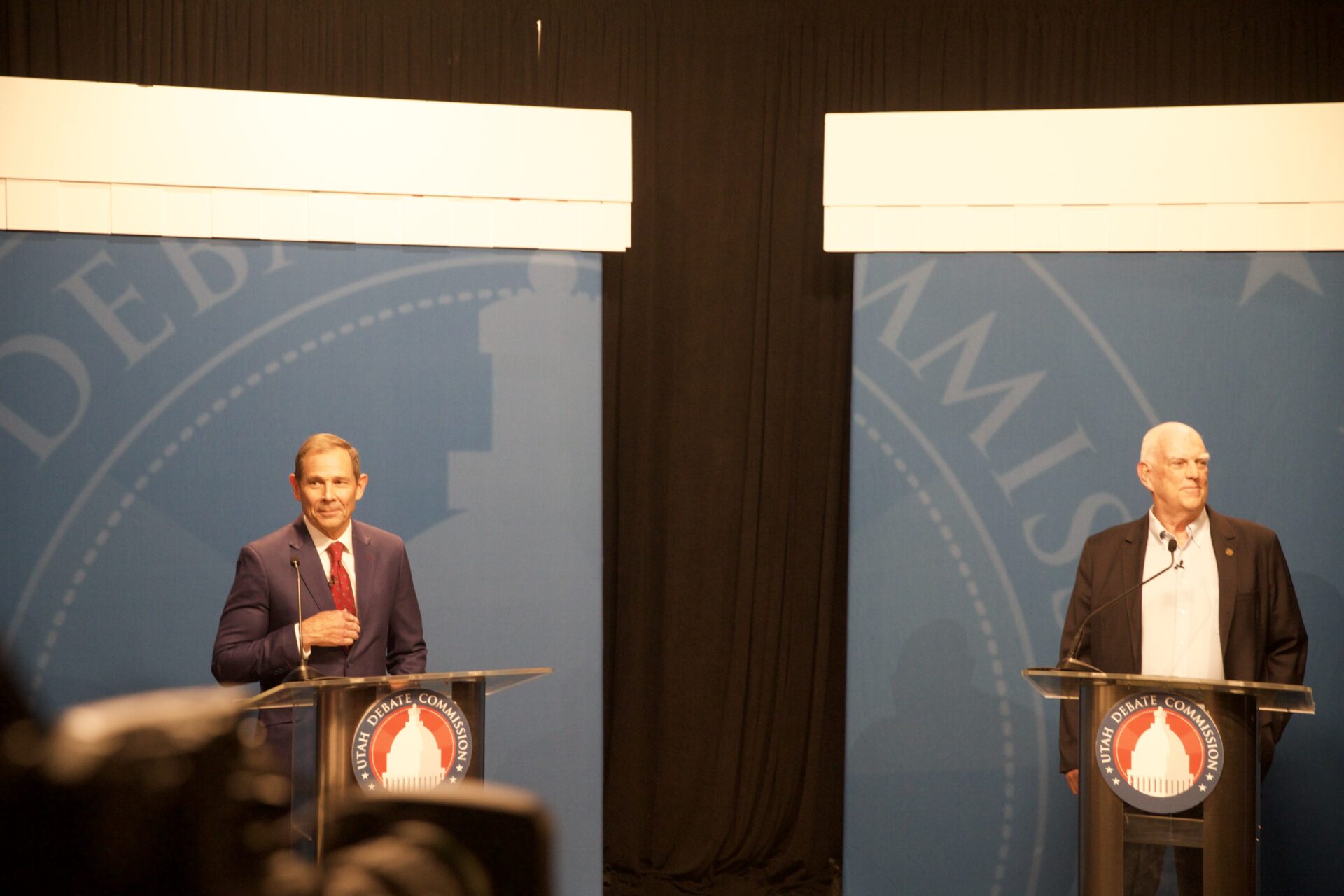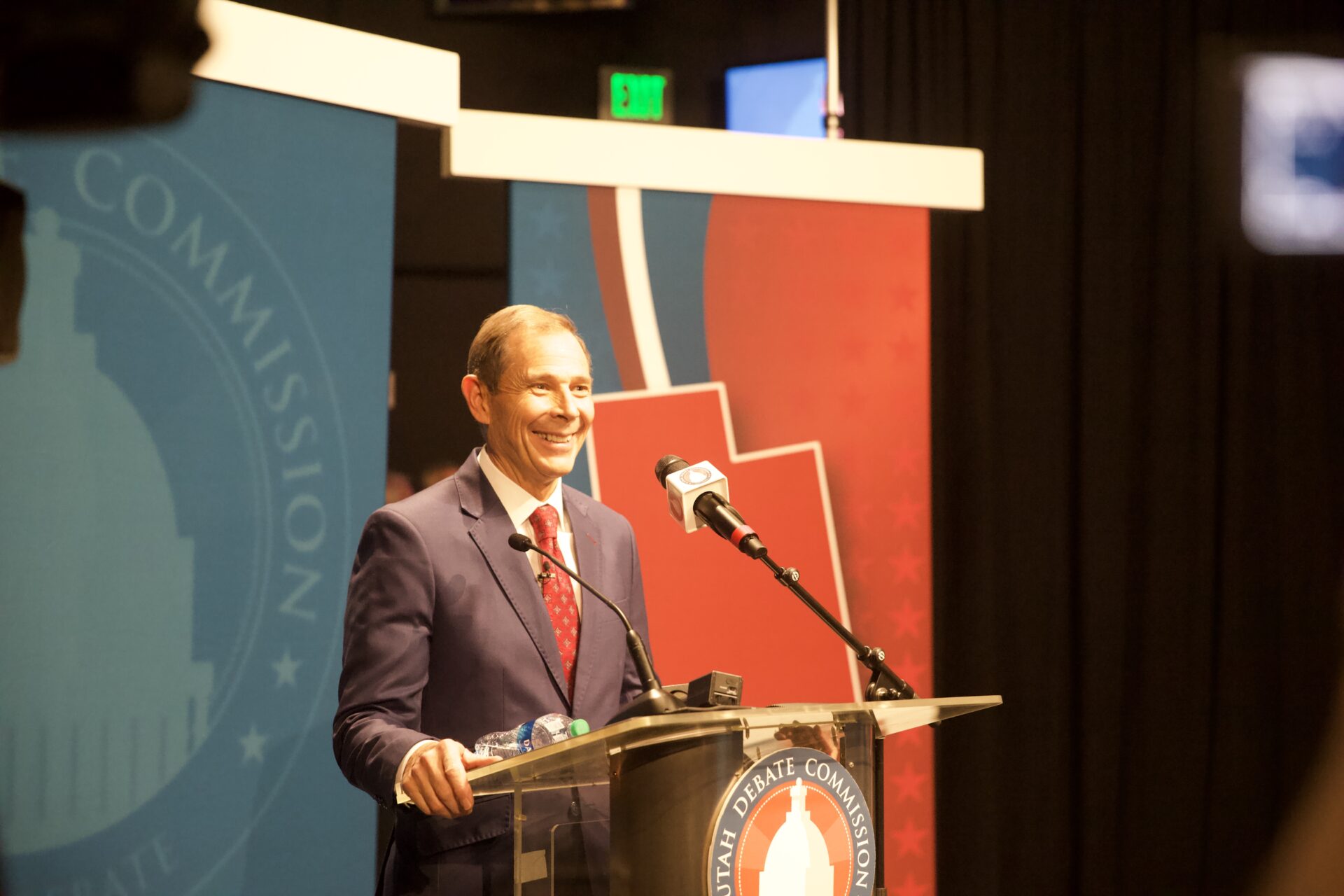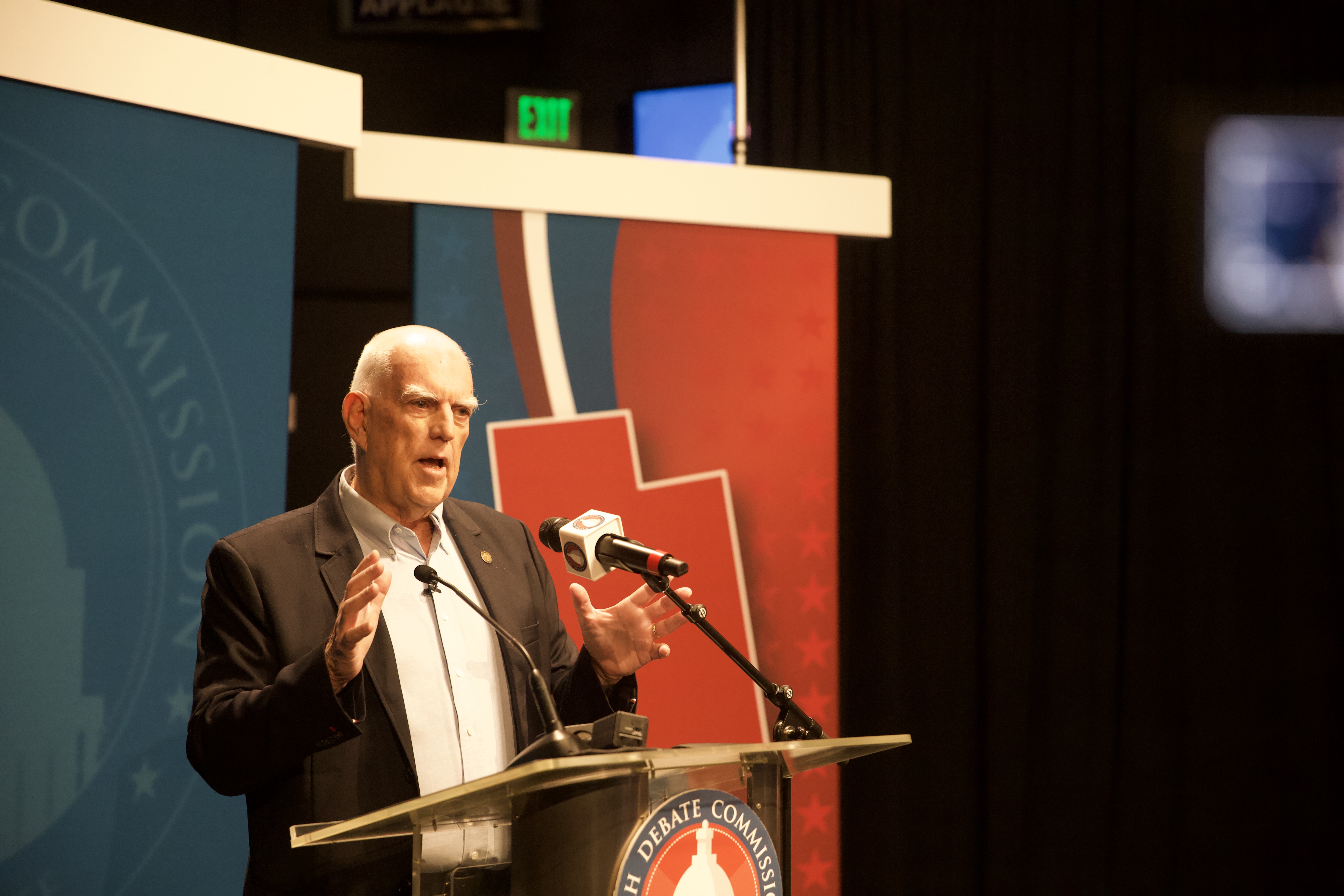
Third Congressional District candidates John Curtis (R) and Glenn Wright (D) discussed abortion rights, student loan forgiveness, inflation and house ownership during a debate at BYU Oct. 6.
Curtis, a BYU alumnus and the Republican incumbent representative, was elected to Congress back in 2017 and has worked on 15 pieces of legislation that were signed into law.
Wright, a Vietnam War veteran and member of the Summit County Council, serves on the board of the Utah Association of Counties and is the Democrat challenger.
The debate was moderated by Natalie Gochnour, associate dean in the David Eccles School of Business at University of Utah, and the candidates responded to questions from journalists and BYU students.
Election Day will take place on Nov. 8.
Inflation: homeownership and gas prices
The candidates were asked about the economy and the rise of prices in the last couple years, as well as about what they would do to combat inflation.
Wright said his plan would be to negotiate prices on pharmaceuticals and reduce over a period of time the out of pocket expenses for Medicare. He also said he plans to work toward a decrease in the price of oil.
“We will make ourselves independent of the petrol despots around the world that are causing so much trouble,” Wright said.
Curtis argued Biden’s administration is putting too much money into the economy and that they are over regulating business.
“We’re giving out free money, and then we’re restricting goods. DC can fix this and they need to start with turning down that faucet of money,” Curtis said. “Whether it’s forgiveness of student loans, whether it’s COVID relief, we’re sending out too much money and we’re over restricting goods and services.”

When candidates were asked about what they would do on a federal level to ensure Utahns have the possibility to buy a home, Curtis talked about getting interest rates back under control.
“Today, these young people that you’re talking about are taking out a loan at twice the interest rate of just last year — that does more to impact the cost of that home than any other factor,” Curtis said.
Wright said there are things within federal regulations that they could do to improve the availability of affordable housing, such as bought grants.
“We should start thinking about bought grants for cities and counties that have good plans for producing affordable housing and have proven that they have the method in place to do those planks,” Wright.
The candidates also talked about reducing gas prices, and Wright said the most important thing they could do is to electrify transportation to lower the prices. Curtis said in his rebuttal he thought it didn’t help to move to electric vehicles, since in places like California they do not have the power to charge them.
Student loan forgiveness
Curtis and Wright talked about their thoughts on President Biden’s student loan forgiveness plan and about how to make college more affordable.
“I think what President Biden did was wrong on many, many levels,” Curtis said
Curtis said students not paying back student debt was one of the causes of the recent increase of inflation.
“Those students signed a contract that said they would pay it back and we’re teaching them that contracts don’t mean anything,” Curtis said.
The Republican incumbent representative said that the solution was to lower the cost of college tuition and not forgive debt.
“I do think that the debt forgiveness was a good thing,” Wright said. “If you look historically, student loans were at a very high interest rate.”
Wright said he agreed with Curtis in regards to seeing that there is a need to control the cost of college.
Immigration
Moderator Gochnour asked the candidates about changes they would make in the immigration system to address labor shortages.
“We pay not enough workers to build houses,” Wright said. “There are a lot of folks outside the country that would like to come in and help us build our economy.”
To this, Curtis responded by inviting Wright to join the conversation on immigration, since the two candidates said they agreed on some ideas.
“Imagine the GDP because we have a good group of people willing to come to this country, obey our laws, pay taxes and in many cases go back home and we’re not letting them connect with the people that need jobs here,” Curtis said.

Transgender girls participating in sports
The candidates responded to a BYU student’s question regarding the Utah bill that bans transgender girls from competing in sports and the case where a Utah judge temporarily halted the ban.
“It’s about fairness, we need to be fair to these young women,” Curtis said. “I have four daughters, I do not want a man competing with them in sports — period, under any circumstances.”
Wright said he didn’t think the legislature had to get involved in the issue, and that instead, it should have been the NCAA or the Utah State High School Association that made the call.
“I think the really bad part of the bill was that it came from a segment of our society that is afraid of the LGBTQ community and they found transgender folks as the latest whipping person,” Wright said.
Abortion rights
One of the last questions of the debate was about limitations on abortion in light of Roe v. Wade being overturned last June.
Wright said he thinks the overturn of the landmark Roe v. Wade decision is a reasonable way to put restrictions on abortion.
Curtis said he is unapologetically pro-life and that abortion regulations should fall on state legislators.
“Look, I get it, if you’re a woman, it stinks that most legislators are men. Most of these decisions are made by men,” Curtis said. “I wish it were other than that, I wish as a man I didn’t have to make this decision, I wish women could make this decision.”




